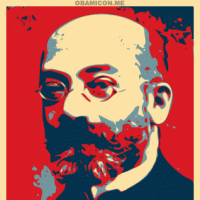Viestejä: 19
Kieli: English
Rogir (Näytä profiilli) 9. helmikuuta 2009 15.57.19
jchthys (Näytä profiilli) 9. helmikuuta 2009 21.53.24
I was thinking recently about the best form of metre for Esperanto, quantity or stress, and I decided that a more stress-based system was better.
Now concerning Esperanto rhyme: isn't it a bit boring, considering that the endings indicate grammatical form?
erinja (Näytä profiilli) 10. helmikuuta 2009 13.37.46
russ (Näytä profiilli) 11. helmikuuta 2009 8.37.43
A lot of older books are floating around the net in pdf form with file names of the form "eo - author - title.pdf" from a now-defunct website elibrejo. Google for
"eo - platono" pdf
and you'll find various links to some by Plato, for instance, or "eo - vallienne" pdf gets you links to some translations of Vallienne.
hiyayaywhopee (Näytä profiilli) 11. helmikuuta 2009 22.38.58
jchthys:Well, I don't think I'll do it anytime soon, and the whole thing maybe never...Rhyme isn't just matching up the sounds of the last syllables of words: the sounds have to match starting at the last accented syllable. So "arbo" and "hundo" or "mother" and "father" don't rhyme; "ŝtono" and "duono", however, do.
I was thinking recently about the best form of metre for Esperanto, quantity or stress, and I decided that a more stress-based system was better.
Now concerning Esperanto rhyme: isn't it a bit boring, considering that the endings indicate grammatical form?
jchthys (Näytä profiilli) 11. helmikuuta 2009 23.53.28
hiyayaywhopee:I know, but the rhymed words still are almost always the same part of speech.jchthys:Well, I don't think I'll do it anytime soon, and the whole thing maybe never...Rhyme isn't just matching up the sounds of the last syllables of words: the sounds have to match starting at the last accented syllable. So "arbo" and "hundo" or "mother" and "father" don't rhyme; "ŝtono" and "duono", however, do.
I was thinking recently about the best form of metre for Esperanto, quantity or stress, and I decided that a more stress-based system was better.
Now concerning Esperanto rhyme: isn't it a bit boring, considering that the endings indicate grammatical form?
russ (Näytä profiilli) 12. helmikuuta 2009 22.04.49
jchthys:Read some of Grabowski's poetry, and I think you'll find it's not boring.hiyayaywhopee:Rhyme isn't just matching up the sounds of the last syllables of words: the sounds have to match starting at the last accented syllable. So "arbo" and "hundo" or "mother" and "father" don't rhyme; "ŝtono" and "duono", however, do.I know, but the rhymed words still are almost always the same part of speech.
jchthys (Näytä profiilli) 12. helmikuuta 2009 22.31.46
Frakseno (Näytä profiilli) 13. helmikuuta 2009 18.25.48
jchthys:I found a German site that provides free electronic copies of old Esperanto books: http://www.onb.ac.at/sammlungen/plansprachen/fru..., including poetry by Grabowski.Very nice link! Thanks for sharing!!





